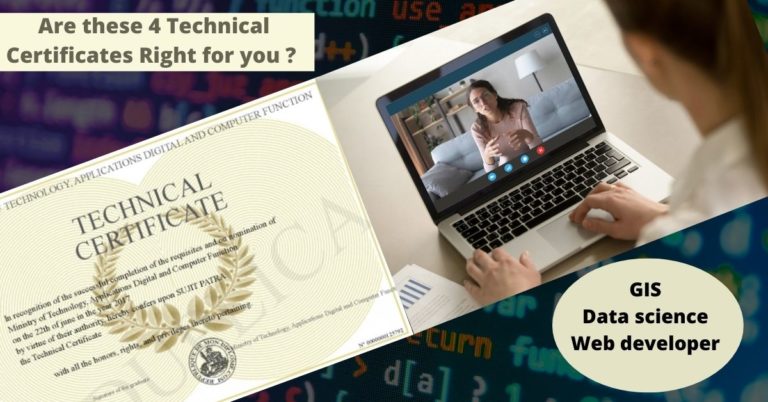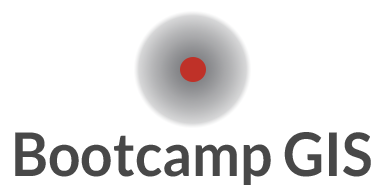When Comparing Online degree in GIS to GIS certificates, there are several factors to consider.
Here’s a breakdown of key points:
1. Depth of Knowledge:
A GIS degree typically provides a comprehensive education in GIS, covering various aspects such as spatial analysis, cartography, remote sensing, database management, and programming. It offers a broader understanding of GIS concepts and techniques. On the other hand, a GIS certificate program often focuses on specific skills or applications within GIS, offering more specialized knowledge.
2. Time and Cost:
Generally, GIS certificate programs are shorter in duration compared to degree programs. Certificates can typically be completed in a matter of months. Whereas a bachelor’s degree in GIS may take around four years. Consequently, the cost of obtaining a certificate is usually lower compared to a degree program.
3. Career Opportunities:
Both degrees and certificates can provide opportunities in the GIS field. But a degree is generally more advantageous for career advancement. Many employers prefer candidates with a bachelor’s or master’s degree in GIS for higher-level positions or specialized roles. A degree can also be beneficial if you plan to pursue advanced research or academic positions. However, if you already have a relevant degree or experience in a related field. A GIS certificate can enhance your existing qualifications and open up new job prospects.
4. Flexibility:
GIS certificates are often designed for working professionals or individuals looking to add GIS skills to their existing expertise. They offer flexibility in terms of scheduling and can be completed part-time or online. Degree programs, on the other hand, usually follow a structured curriculum and require a more significant time commitment.
5. Academic vs. Practical Focus:
GIS degree programs often provide a more theoretical and academic foundation in GIS, including coursework in mathematics, computer science, and geography. They typically delve into research methods and offer a broader understanding of the underlying principles. GIS certificates, on the other hand, tend to have a more practical focus. Emphasizing hands-on skills and application of GIS software and tools. Ultimately, the choice between a GIS degree and a GIS certificate depends on your specific goals, prior education, career aspirations, and time and financial constraints. If you are starting your GIS journey and want a comprehensive education or plan to pursue advanced positions, a degree may be more suitable. However, if you are looking to specialize in a particular aspect of GIS or enhance your existing qualifications, a certificate program can be a valuable option.
- Explore an industry GIS certificate
In conclusion, we have explored in this article the different courses of actions one can take as a student pursuing education and work within the GIS industry. Understanding which types of certifications or degrees would benefit us the most is paramount to reaching specialized roles in cartographic careers. With the relatable endeavor of obtaining the most solid background in the most reasonable timeframe, while also being cost beneficial and having a feasible return in terms of career advancement. At Bootcamp GIS, where I received my certificate. I was exposed to many skills that employers are seeking. Such as developing intrinsic GIS skillsets which include agile network management, consistent research/ development, as well as elementary coding. Complementing this with another degree in geography is proving to be very beneficial to my options in terms of seeking a job.








